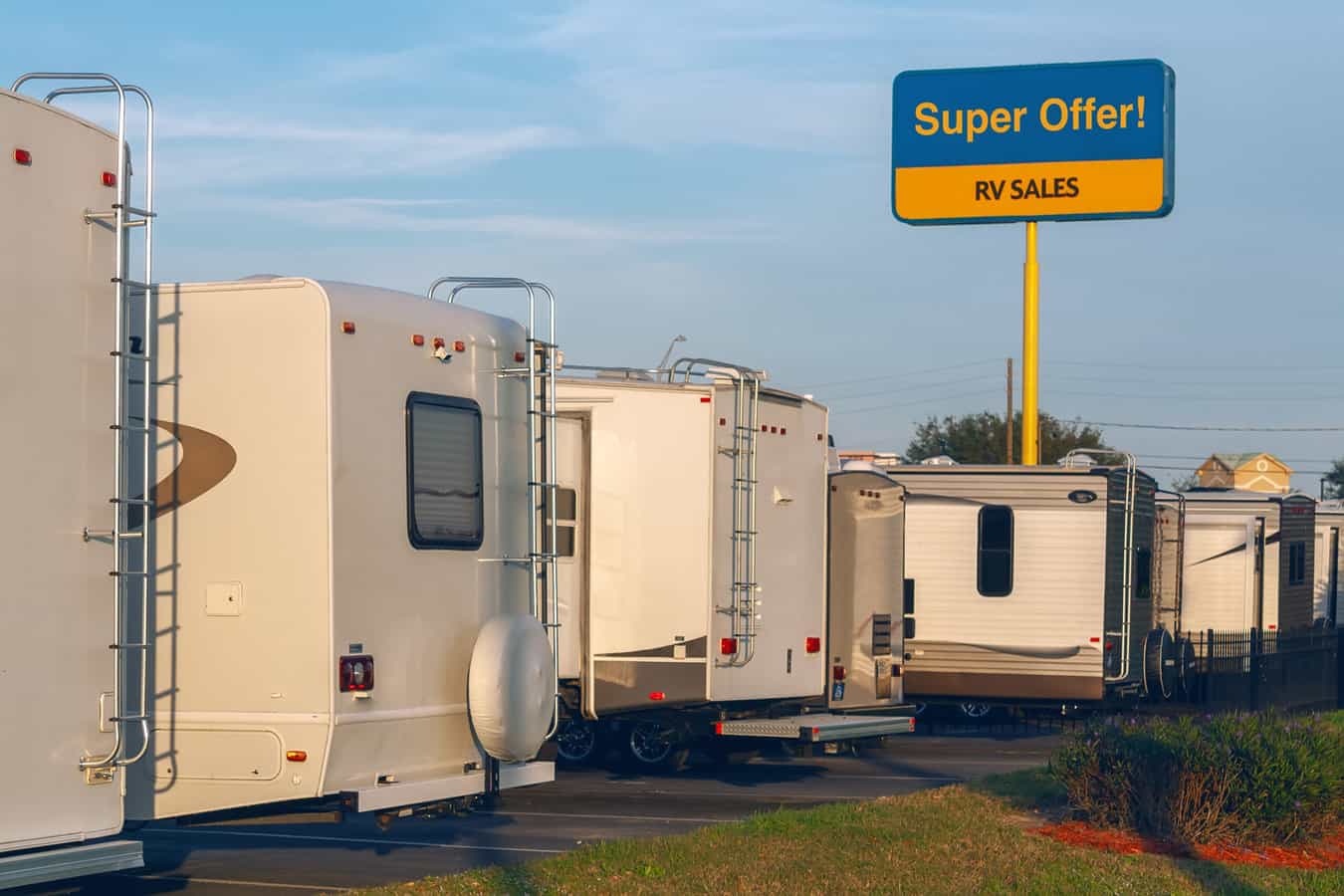
Why You May Want an RV Inspector
A recent report from the National RV Inspectors Association (NRVIA) revealed a staggering number of monthly searches for “RV inspector.” Per month, in August and September, more than 10,000 people performed searches on the organization’s website to locate inspectors in their area.
“When we developed the search function on our website, we hoped it would be a way for inspectors to get an occasional referral from people needing an RV evaluated, but I think 10,000 searches a month is incredible,” said Stephanie Henson, NRVIA director of administration. “Today, most RV buyers are finding an NRVIA Certified RV Inspector through the locator map. It’s a testimony to the rising demand for inspection services as more people learn the service is available.”
“With more than 1,500 new RVs being built every day and 2,000 used RVs sold every day, the need for inspectors continues to be very high,” chimed in Terry Cooper, NRVIA president.
“We’re hearing reports of housing inspectors and even auto inspectors jumping on the bandwagon to evaluate RVs,” added Henson.
Is there really a difference between inspectors? An RV is technically a home-on-wheels, so wouldn’t housing and auto inspectors qualify? Or should you settle for nothing less than a certified RV inspector? Do you really need to waste money on an inspection when you can perform one yourself?
What is an RV inspector?
In a nutshell, an RV inspector is a professional certified to conduct a detailed inspection of the current condition of large Class A motorhomes, Class B campers, travel trailers, and other RVs. Unlike an inspection performed by the dealership (read about three types of pre-delivery RV inspections), the certified RV inspector referred to in this article is the unbiased third party. The individual has no financial stake in the inspection’s possible purchase/sale.
RV inspectors are hired directly by potential buyers or requested as part of an extended warranty plan. Folks looking to sell their RV may hire an RV inspector to help decide on a reasonable price and display its detailed condition to interested parties.
According to HomeGauge, a home inspection software company, to be an effective RV inspector, you must essentially have a working knowledge of both house and auto components, including:
- RV interiors, including facilities, upholstery, furnishings, and cabinets
- Exterior body and underbody (looking for things like rust and dents)
- Air and heating systems and furnace
- Propane systems
- DC and AC electrical systems
- Plumbing and water systems
- RV refrigerator, generator, and other appliances
- Tire and wheel condition, along with 4-wheel and all-wheel systems
- Windows, doors, and roof condition
- Collision or water damage
- RV fire safety
- RV weight regulation
- Engine, transmission, and exhaust
- Braking systems, steering, and suspension
Why get an RV inspection?
Knowing what expertise is required to become a certified RV inspector, why wouldn’t you want one running a fine-tooth comb through your potential unit? Regarding reports of untrained competitors like home and auto inspectors offering the services as well, Henson plainly stated, “…we remind consumers that RVs are complicated pieces of equipment. They are an assembled collection of different components – each of which needs to be evaluated and tested to ensure it works properly.”
“It is impossible to thoroughly review all those components and evaluate the life-safety issues of an RV in a 30- to 45-minute review,” She added. “RV inspectors need specific training to know what to look for in an RV and how to document their findings in a thorough report.”
RV inspectors are beneficial in many ways, the most important being:
1. Help make informed purchasing decisions
As mentioned before, certified RV inspectors have a working knowledge of an RV’s essential components and structural aspects. The inspector lets the buyer know about the RV’s condition. Having that information provided by the inspector will help you make several decisions on your purchase, like whether or not to even sign on the dotted line.
iRV2 forum members “wolfie10” and “arcaguy” joined in on their inspections. Arcaguy wrote, “I was present at the inspection, so it was a learning experience for me. I would recommend being present if you can.” Wolfie10 added, “…be there for the inspection (with old clothes on). An excellent learning experience.”
Every RV inspector works differently, so be sure to ask beforehand if they mind you tagging along for the inspection. While some will agree, others prefer to concentrate on the task at hand and discuss their findings in detail after the inspection.
2. Bring to attention repairs or damages that need to be addressed
More often than not, regardless if an RV is new or used, there will be issues to contend with, however big or small. Thorough RV inspections often detect these issues, so the potential buyer has the opportunity to have issues repaired before the final sale or possibly negotiate on the price in lieu of repair work.
Recalling his experience with an RV inspector, iRV2 forum member “Firebean” wrote, “When we picked up our shiny new RV, we found outlets that didn’t work, dead battery, and several other small things. They fixed them all, but if we hadn’t checked everything, they would have sent us on our way without fixing anything. It’s also much much easier to get anything fixed before pick up rather than trying to get warranty work done later.”
3. Justify a fair price for the unit
Knowing the actual condition of the RV gives you the advantage of further negotiating on price, especially if the one being offered is grossly overpriced.
How to find an inspector
Besides locating an RV inspector through NRVIA, companies like RV Inspection Connection and Premier RV Inspections are ready to help RV buyers. There are tons of RV inspection businesses around the nation. So for your benefit, do your homework, check out reviews, call the company, and choose one that meets your needs and budget.
For those in a pinch and seeking an RV inspector sooner rather than later, Henson offers, “If someone is unable to find an inspector in their area, they can email a request to [email protected]. By providing the location of the RV, its year, make, and model, we can include the information in an alert broadcast to inspectors nearly every day to help clients connect with certified mobile inspectors passing through their area.”
Interested in becoming an RV inspector?
“As more people become aware of what an RV inspection can do to help them make informed decisions about purchasing an RV, demand for inspections continues to exceed the number of trained inspectors available to perform the evaluations,” said Cooper.
Interested in becoming a certified RV inspector? The need is great. According to the article, RV Tech Schools May Play A Significant Role In Post-Pandemic Recovery, the RV Technical Institute (RVTI), created to help those wishing to become RV inspectors, has teamed up with Authorized Learning Partners all across the county.
The article reads, “They claim 100% job placement, a steady career ladder, and lifelong learning, to name a few.” Besides the RVTI, the National RV Training Academy (NRVTA), the Recreational Vehicle Service Academy (RVSA), and others offer training as well. The RVSA has even teamed up with the RVTI to help keep curriculum standardized and offer training to a broader array of students.”
The following video from NRVTA discusses how you can jump-start a new career in the RV industry as an NRVIA Certified RV Inspector.
One of the best parts about RVing is engaging with the community of traveling enthusiasts. iRV2 forums allow folks to chat with other RVers online, and get other perspectives on everything RVing, including products, destinations, RV mods, and much more.




